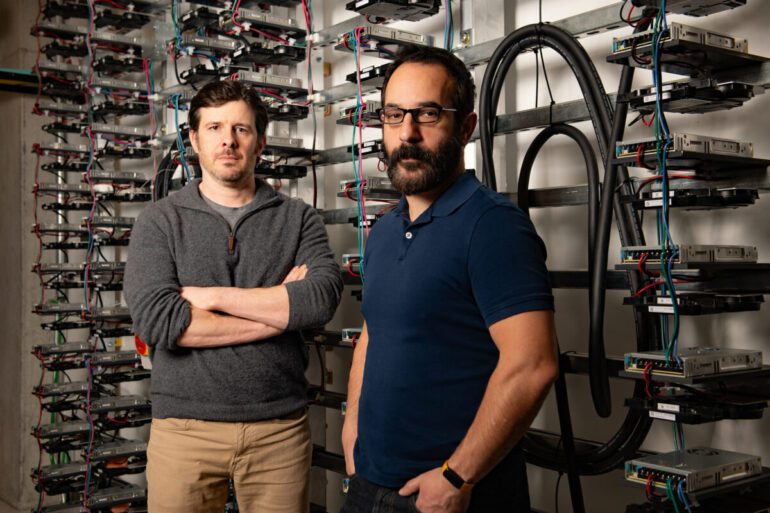TL;DR:
- The University of Texas at Austin is creating the Center for Generative AI, equipped with a powerful GPU computing cluster.
- The cluster, named Vista, features 600 NVIDIA H100s GPUs, making it one of the largest in academia.
- The initiative aims to accelerate advances in health care, drug development, materials, and various industries through AI research.
- The center focuses on biosciences, health care, computer vision, and natural language processing (NLP).
- It operates within UT’s Machine Learning Laboratory and involves collaboration with multiple schools and departments.
- UT believes in the role of academia in shaping the AI ecosystem and driving the AI revolution.
- This endeavor builds on UT’s existing AI initiatives and partnerships.
- UT is strategically positioning itself to lead in generative AI technology and its applications.
Main AI News:
In the ever-evolving landscape of artificial intelligence (AI), The University of Texas at Austin has embarked on a groundbreaking initiative. With an unwavering commitment to pioneering research and collaborative partnerships, the institution is establishing the Center for Generative AI. Powered by a state-of-the-art GPU computing cluster, this endeavor is poised to become one of the most substantial hubs of its kind in the academic realm.
The computing cluster at the heart of this enterprise boasts a staggering 600 NVIDIA H100s GPUs, specialized devices designed for swift mathematical computations, making them a perfect fit for the training of AI models. The Texas Advanced Computing Center (TACC) will provide a home for and actively support this remarkable cluster, aptly named Vista.
President Jay Hartzell expressed the significance of this investment, stating, “Artificial intelligence is fundamentally changing our world, and this investment comes at the right time to help UT shape the future through our teaching and research.” He added, “World-class computing power combined with our breadth of AI research expertise will uniquely position UT to speed advances in health care, drug development, materials, and other industries that could have a profound impact on people and society.”
The Center for Generative AI is set to play a pivotal role in bridging academia with industry and other sectors. With a primary focus on biosciences, health care, computer vision, and natural language processing (NLP), this new center will be integrated into UT’s interdisciplinary Machine Learning Laboratory. It will be jointly led by the Cockrell School of Engineering and the College of Natural Sciences, with support from Dell Medical School, the School of Information, and the McCombs School of Business.
Alex Dimakis, the director of the center, emphasized the importance of academia in the AI revolution, stating, “Open-source models, open data sets, and interdisciplinary peer-reviewed research is the safest way to drive the upcoming AI revolution. Universities are uniquely suited to shape this ecosystem, and we are excited to be on the frontier of generative AI here in Austin.”
UT’s existing AI endeavors, such as the AI Institute for Foundations of Machine Learning (IFML) and the formidable supercomputer Frontera at TACC, provide a solid foundation for the Center for Generative AI. This visionary initiative aims to apply fundamental algorithmic resources to tackle large-scale applied problems, ultimately aligning academic and industrial aspirations in the field of artificial intelligence.
Professor Adam Klivans, director of the Machine Learning Laboratory, expressed optimism about the center’s potential impact, noting, “With this investment, we can accelerate the process of scientific discovery and find new solutions to major engineering challenges that would otherwise take years of experimental work.”
This latest undertaking builds upon UT’s recent momentum in AI, from the introduction of an online master’s program to significant research investments and partnerships. As AI continues to reshape industries and society at large, The University of Texas at Austin is positioning itself at the forefront of this transformative wave, shaping the future of generative AI technology and its applications.
Conclusion:
The establishment of the Center for Generative AI by UT Austin, with its cutting-edge infrastructure and multidisciplinary approach, signals a significant step forward in the AI market. This initiative fosters collaboration between academia and industry, driving innovation and advancements in AI technology. UT Austin’s strategic positioning positions it as a key player in shaping the future of AI, particularly in biosciences, health care, computer vision, and NLP, with far-reaching implications for various industries and society as a whole.

